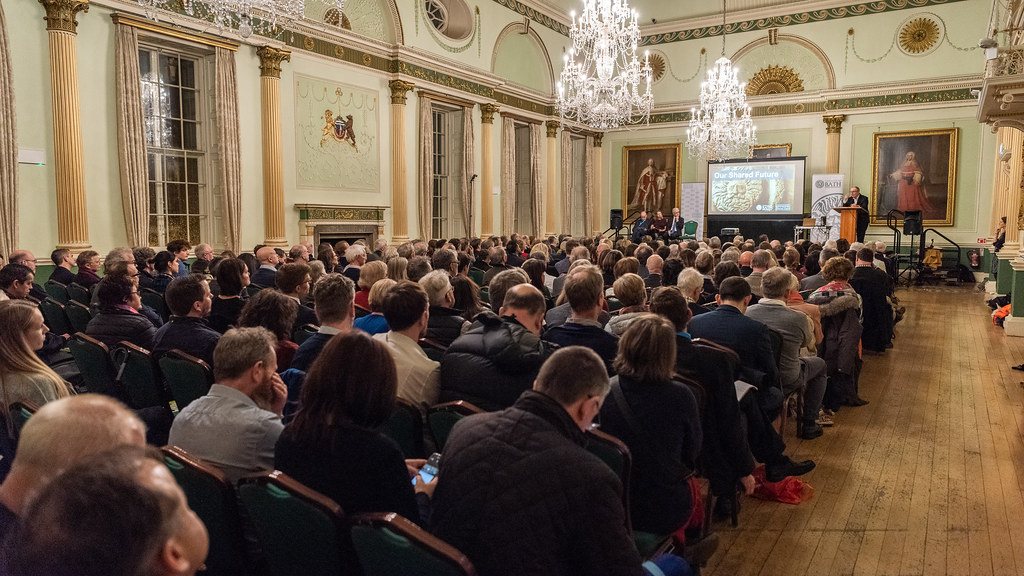Three themes identified by Bath & North East Somerset Council (B&NES) as priority areas: cohesion and inclusivity; infrastructure; and climate change, inspired a number of workshops between University researchers, Council and local organisations including the NHS and voluntary sector to develop ideas for the work ahead.
Successful funding applications to the UK Research and Innovation (UKRI) QR Strategic Priorities Fund, which supports universities to work in partnership with policymakers, to better understand local, regional or national challenges, enabled three important projects to get underway.
In a project that addresses B&NES’ Climate Emergency declaration, Dr Victoria Stephenson, from the Department of Architecture & Civil Engineering, is working with colleagues to engage with the Council and other stakeholders to investigate reducing energy usage in buildings across the region.
Energy use in buildings, largely through heating, accounts for 68 per cent of the region’s carbon footprint, so decarbonising the heritage building stock is a priority for B&NES. The researchers will seek to better understand the nature of the problem to help the development of a taskforce to initiate community led social and technical solutions to decarbonisation.
The theme of infrastructure is being tackled by Dr Paul Shepherd, also in the University’s Department of Architecture & Civil Engineering. The project, currently in the planning stage, will explore the potential benefits of ‘Digital Twins’, computer simulations using real-world data, for local policymaking.
Under the theme of cohesion and inclusivity, academics are evaluating the impact of the Community Wellbeing Hub, which integrates services from the Council, Virgin Care (for the NHS) and voluntary and community sectors for people in need of support and advice. Researchers in the University’s Faculty of Humanities & Social Sciences are interviewing service providers, service users and local councillors to understand more about how well the service is supporting people to live a healthier and fulfilled life, and providing help with employment, housing and income.
Professor Bernie Morley, Deputy Vice-Chancellor & Provost at the University of Bath, said: “As communities in and around our City face such difficult times through the pandemic it is more important than ever for collaborations to rise to the challenge of finding solutions for the problems we face, be that in health and social care, our economy, or responding to the climate emergency. These projects are focused on making a difference quickly, and I think that is heartening for us all at the moment, to know that people across Bath are working together to find innovative solutions, responding to the changing priorities of the pandemic and looking to the City’s economic recovery.”
Leader of Bath & North East Somerset Council Cllr Dine Romero said: “The many challenges facing our communities –whether that is Covid, tackling the climate and ecological emergency or improving our local transport- all require fresh thinking and innovation. Partnership working is key, so I have been delighted with the collaborative projects we have built with the University of Bath since Our Shared Future was launched a year ago. At that time we couldn’t have dreamt of the changes our city and wider area would experience in the following twelve months, but working together in this way has meant we can draw on each other’s skills, local knowledge and resources both to respond to the crisis and prepare for the future. We value these collaborations immensely and will continue to work closely with our fantastic universities for the benefit of our local communities.”
In 2020 the University became a key partner in the Economic Recovery & Renewal Board, led by B&NES Council and including tech, culture, manufacturing, services, tourism and education representatives as well as the Bath BID. The partnership aims to rebuild confidence Bath as a safe, sustainable and green place in which to visit, study and work. Among other projects, the University is contributing to conversations aimed at establishing “skills hubs” and re-skilling people into new areas of opportunity such as the green and digital economies.
Professor Ian White, Vice Chancellor and President of the University of Bath, represents the University on the Bath Economic Renewal Partnership and is also a member of the West of England Economic Recovery Taskforce, representing the regions’ four Universities. Bringing together businesses, local government, universities and other partners including the West of England Combined Authority and Local Enterprise Partnerships, the Taskforce aims to act as a coordinated lobby to central government, articulating the needs of the region, and to develop clean growth in the economic recovery of the south west region.

